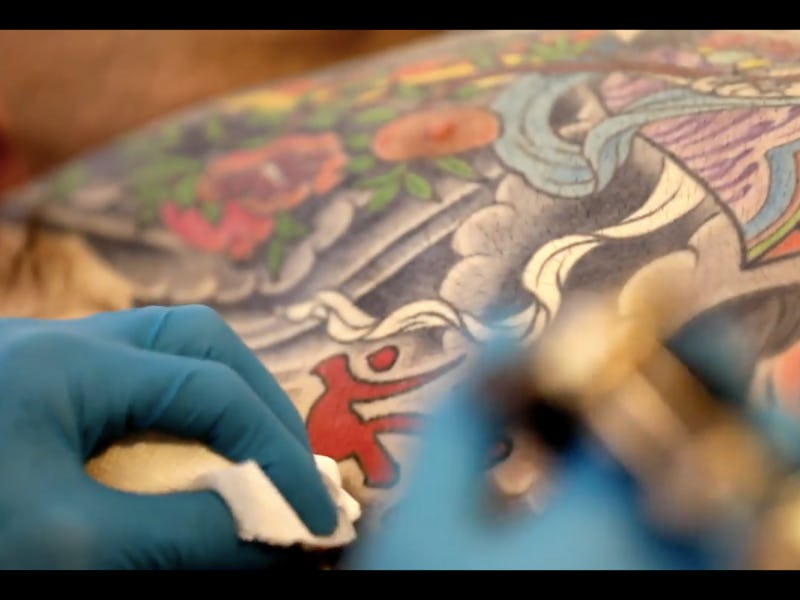This Biotech Company Wants to Tattoo You With DNA From Your Loved Ones
Tattoos just got even more personal.

Getting a tattoo in remembrance of a loved one is a deeply personal act, and according to biotech company Endeavor Life Sciences, you can take make it even more intimate by incorporating that person’s DNA into your tattoo. With its product called Everence — a combination of “forever” and “reverence” — Endeavor has recently built controversial hype among the tattooing community by getting 20 highly regarded tattooers to post the company’s logo to their profiles on Instagram, the preferred social media network of tattooers. The company is now taking pre-orders for their DNA product, which can be added to tattoo ink by the artist of your choice.
“We receive the DNA from the client, we sometimes amplify it, then the DNA goes through the process of encapsulation,” explains Edith Mathiowitz, Ph.D., an expert on microencapsulation at Brown University and a scientific advisor for the company, in a video on Endeavor’s website for Everence that launched on Friday.
“At the end of the process what you get is powder that you can incorporate into any ink you want to use.”
The DNA can come from a cheek swab, skin, hair, blood, or saliva, according to the patent for the technology, filed in February 2016. “A cheek swab sample is preferred,” though.
Once the company gets your DNA sample, they encapsulate it in poly(methyl methacrylate) — PMMA for short — a transparent plastic more often commonly known as acrylic. These microscopic capsules of PMMA make up a fine white powder that is mixed with conventional tattoo ink. This may sound gross or weird, but if the particles are microscopic as the company says they are, it’s not much different from the particles that make up any normal tattoo ink. As such, it should behave in much the same way that tattoo inks behave.
Since the tiny plastic capsules are fully closed, their contents theoretically won’t ever come into contact with your body tissue. According to the patent, pretty much anything can be put inside them, “such as a biological material, sand, soil, metal, water, sea water, holy water, synthetic or biological polymers, cremated ash, ceramics, animal or plant tissue, or another physiologically compatible component having personal significance to an individual are described herein.”
Of course, this kind of intimacy doesn’t come cheap. The listed price for the service is a cool $540 — and that’s before you even get the tattoo.
Whether the procedure is as safe as Endeavor says is hard to gauge, at least by federal guidelines. Remarkably, regulations from the United States Food and Drug Administration on tattoo ink in general are quite lax, and so far, it has said nothing about Everence. While the government agency has very high safety standards for medical devices and condoms, it considers tattoo ink a cosmetic, which basically means it just can’t be toxic.
That being said, your tattooer may look at you sideways when you bring in a bottle of powder and ask them to tattoo you with it. If that’s the case, Endeavor says on its website that artists can reach out to the company or any of its brand ambassador artists.
“I would have no hesitancy in recommending Everence to someone in my own family,” says Bruce Klitzman, a biomedical engineer at Duke University who’s serving as a scientific advisor for Everence, in the promotional video for the product. “There’s nothing objectionable about it.” The project is personal for Klitzman, who lost his daughter to an undiagnosed heart problem when she was 25 years old.
Everence’s launch has ruffled some feathers in the traditional tattooer community, a notoriously insular, old-school bunch. Some artists seem resentful at a biotech company entering the scene with an expensive product.
“Corporate tattooing at its finest!” reads one sarcastic comment on one of the artist brand ambassadors’ Instagram posts. Many more commenters share this critic’s sentiment, but there are also just as many comments from people who love the idea. The coming months will show just how popular the product is.